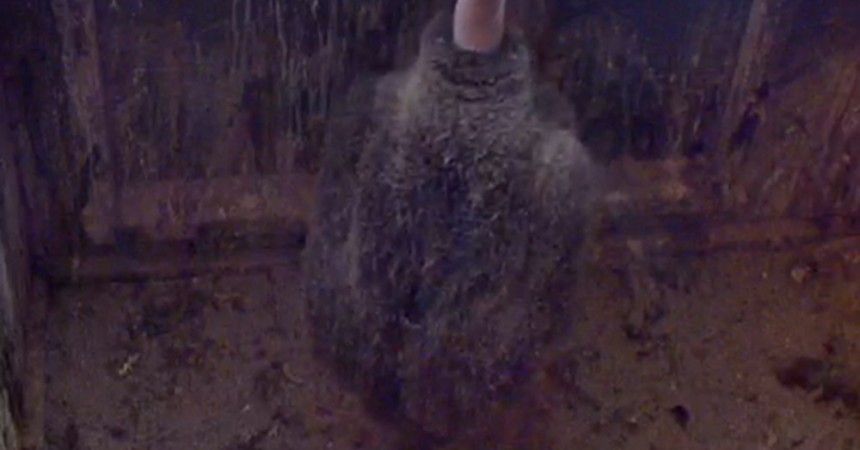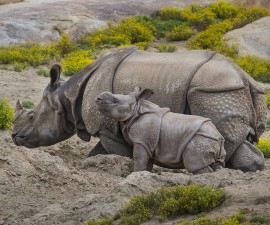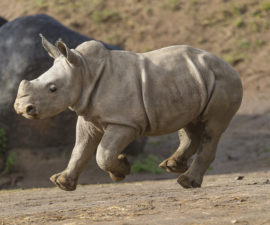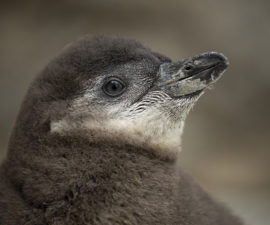The results are in: Our California condor chick being raised on Condor Cam at the San Diego Zoo Safari Park is a female. Her name is “Antiki” (pronounced “an-TEE-kee”), a Chumash word that means “to recover, get well.” She is the seventeenth chick produced by parents Sisquoc and Shatash, and is the seventh that they have raised themselves, including the 2012 and 2013 Condor Cam stars: Saticoy (now flying free in southern California) and Cuyamaca (currently soaring free in Arizona). The pair’s other offspring were raised by keepers using a condor puppet so the chicks wouldn’t imprint on their human caretakers. Overall, Sisquoc and Shatash have proven to be great and reliable parents.
Some viewers have worried about the amount of time that Antiki spends alone in the nest—that she might be getting lonely. Yet, it’s important to look at the situation from a condor “point of view,” using what we know about their natural history.

California condors naturally have a one-egg clutch; in other words, there is never more than one chick in a nest. Although the chicks may appear lonely to us, we need to keep in mind that their social requirements are much different from ours. Of course, a human would be lonely being raised in isolation, but condors thrive in that situation. There is no competition from nest mates (ensuring plenty of food for growth), the single chick receives plenty of attention, preening, and protection from both parents (facilitating the proper social skills for when it’s time to leave the nest) and there is less waste that accumulating in the nest (reducing the possibilities for nest parasite infestation).
Sisquoc and Shatash visit Antiki several times a day for feeding and social interaction, giving her everything that she needs. If she was in distress, it would manifest in improper growth and unusual behaviors. She is in perfect health and showing excellent behaviors for a release candidate of this age, indicating that Sisquoc and Shatash are doing a textbook job!
We do not offer her “toys” or enrichment items, as her parents have provided several items in the nest to explore or play with: feathers, dried food items/bones, or cast hair pellets. We have seen Antiki (as well as every other condor that has been raised at the Safari Park) play with, sleep on, and re-distribute these items around the nest. Field observations have shown that chicks in wild nests in California, Arizona, and Mexico behave in the exact same manner. We don’t want to provide any unnaturally occurring items in the nest as playthings as this could encourage her to seek out similar items after she is released to the wild, possibly putting her in harm’s way. Remember, we are trying to foster behaviors that wild condors should have–avoiding human activity and hazardous, artificial situations. Survival rates for condors that become accustomed to humans and human activity are very low.
We are preparing for Antiki’s second health exam this week; it is usually scheduled when the chick is approximately 75 days old. Enjoy watching our little girl grow up and stay tuned for more updates!
Ron Webb is a senior keeper at the San Diego Zoo Safari Park. Read his previous blog, Condor Cam Chick’s First Health Exam.





